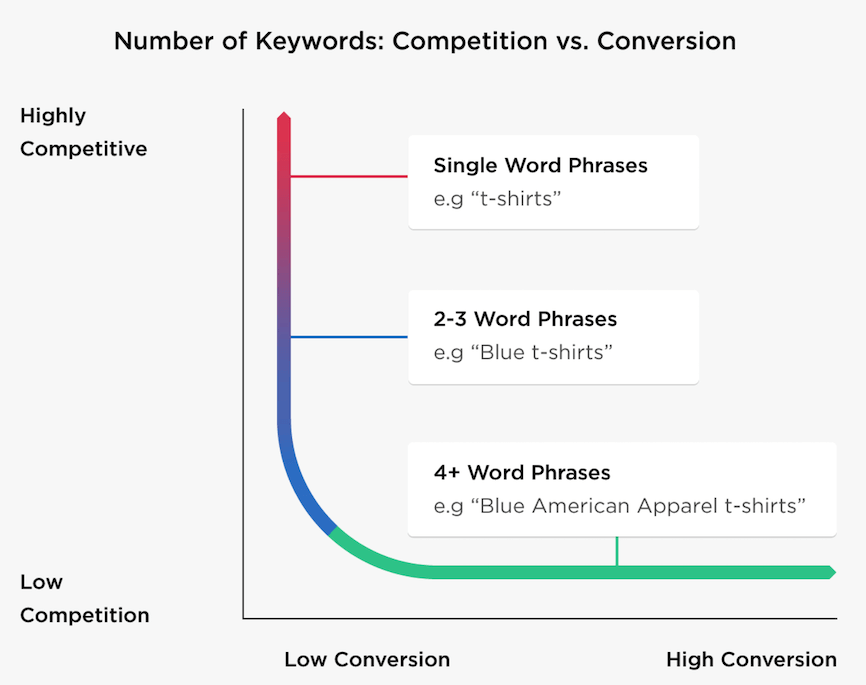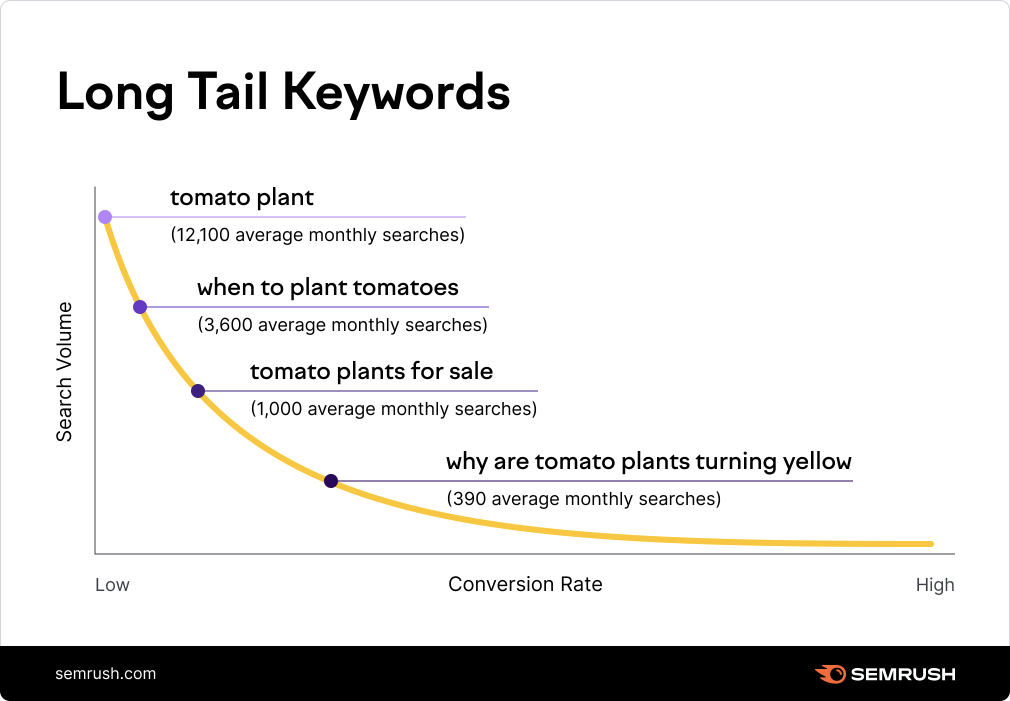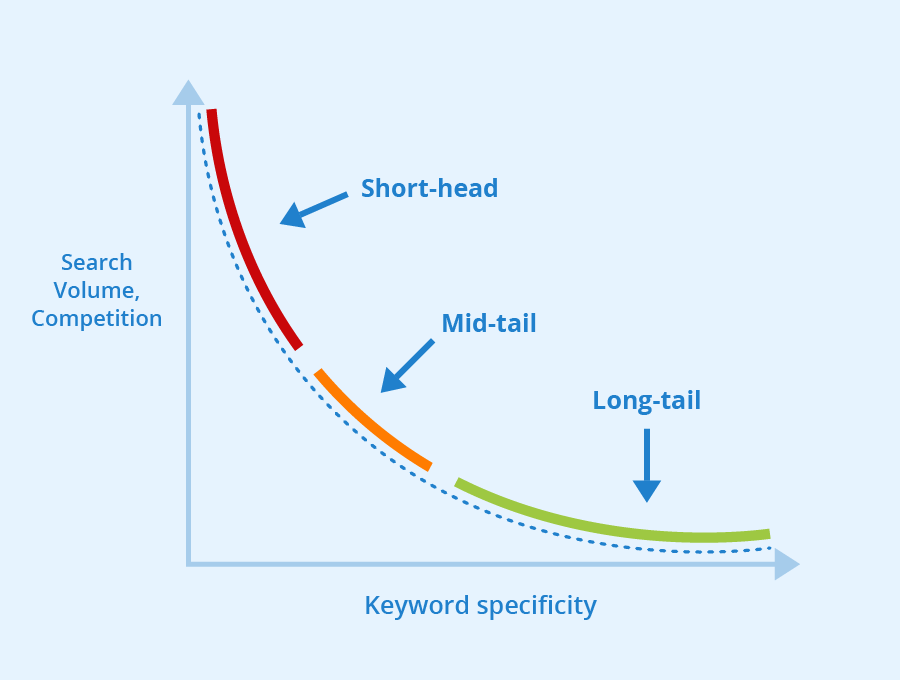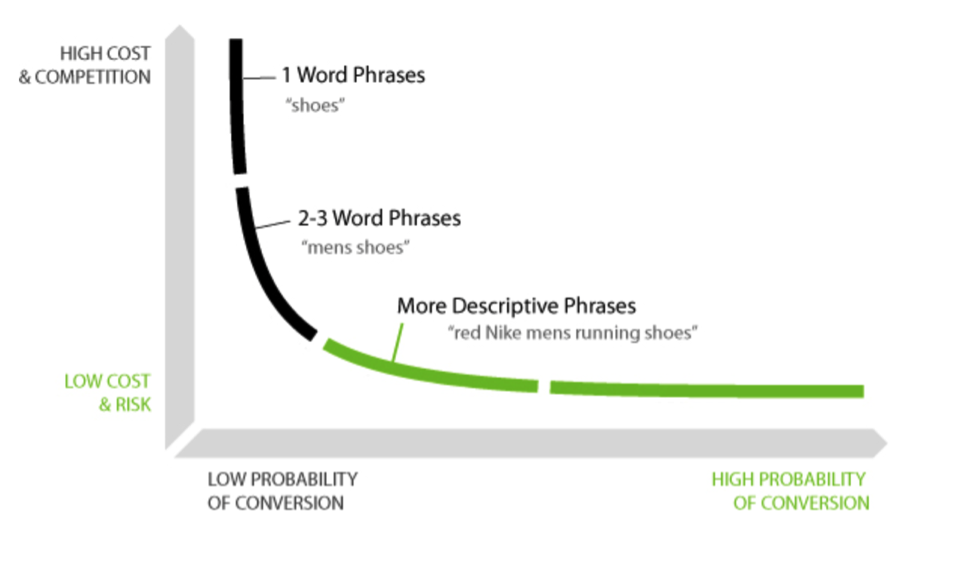Long or Short: Keywords in 2024 for Better SEO?

SEO is a constantly evolving field, and keeping up with the latest trends can mean the difference between thriving and falling behind.
One current topic of discussion among SEO professionals is whether long or short keywords are better for search engine optimization in 2024.
Example where I used AtOnce's AI SEO optimizer to rank higher on Google without wasting hours on research:
Example where I'm using AtOnce's AI SEO writer to generate high-quality articles that actually rank in Google:
This article will explore both sides of the debate and provide insights into how you can improve your website's ranking through strategic keyword use.
Quick Summary
- Long tail keywords have lower search volume but higher conversion rates.
- Short tail keywords have higher search volume but higher competition.
- Long tail keywords are more specific and targeted to a niche audience.
- Short tail keywords are more general and can be used for broader topics.
- Using a combination of both long and short tail keywords can improve SEO and attract a wider audience.
Introduction To Long Or Short Keywords In 7 SEO

The Importance of Long-Tail vs Short-Tail Keywords for SEO in 2024
As an industry expert with over two decades of experience, I've witnessed firsthand how using the right keywords can significantly impact a website's ranking.
In this article, we'll explore the importance of long-tail versus short-tail keywords for SEO in 2024.
Long-Tail vs Short-Tail Keywords
Long-tail keywords are phrases containing three or more words, while short-tail (or head) keywords consist of one-word searches like shoes or phone.
Both types have their place in SEO strategy, but choosing between them depends on your goals and content type.
- Long-tail keywords are better for promoting specific products or services
- Short-tail keywords may generate high search volume but often lead to low-quality leads due to increased competition from other websites targeting similar broad terms
Longer keyword phrases tend to be more descriptive and specific, attracting highly targeted traffic resulting in higher conversion rates compared to broader terms.
Creating Context Around User Intent
Long-tail keywords help create context around user intent by providing additional information related specifically towards those needs.
This ensures people find exactly what they need quickly without having too many irrelevant results pop up first!
Long-tail keywords also help create context around user intent by providing additional information related specifically towards those needs.
Overall, understanding these differences is crucial because optimizing for either type requires different strategies depending on factors such as audience demographics and behavior patterns, among others.
So, make sure you choose wisely!
Optimizing for either type requires different strategies depending on factors such as audience demographics and behavior patterns, among others.
Analogy To Help You Understand
Long tail vs Short tail keywords: An Analogy
Choosing between long tail and short tail keywords is like deciding between a marathon and a sprint.
Short tail keywords are like sprints. They are quick, intense, and require a burst of energy. Just like a sprinter, you need to be quick off the mark and have a clear goal in mind. Short tail keywords are highly competitive and attract a large number of visitors. However, they are also very broad and may not be specific enough to attract the right audience. On the other hand, long tail keywords are like marathons. They require endurance, patience, and a steady pace. Just like a marathon runner, you need to have a long-term strategy and be willing to put in the effort. Long tail keywords are less competitive and attract a smaller number of visitors. However, they are also more specific and can attract the right audience. Ultimately, the choice between long tail and short tail keywords depends on your goals and resources. If you want quick results and have the resources to compete, short tail keywords may be the way to go. However, if you want to build a sustainable strategy and attract the right audience, long tail keywords may be the better option.Understanding The Importance Of Keyword Length For SEO

Understanding Keyword Length for SEO in 2024
Choosing the right keywords is crucial for SEO success.
But how do you determine which ones are best?
Understanding keyword length and its importance in 2024 can improve your website's search engine ranking.
The Importance of Finding a Balance
Short keywords may be too competitive and lead to a high bounce rate on your site.
On the other hand, long-tail phrases have lower search volumes but better conversion rates since they target specific user intent.
Therefore, finding a balance between targeted long-tail keywords and broader short-tail phrases with high traffic potential is essential.
5 Things to Keep in Mind
- Identify Competition Levels: Use Google Keyword Planner or SEMrush tools for identifying competition levels.
- Shorter Keywords Attract More Organic Traffic: Despite their competitiveness, shorter keywords attract more organic traffic.
- Long-Tail Phrases Offer Higher Conversions: Long-tail phrases offer higher conversions due to targeting specific user needs.
- A Mix of Both Types Helps Achieve Optimal Results: Balancing volume vs specificity helps achieve optimal results.
- Regularly Monitor Rankings & Adjust Strategy: Regularly monitor rankings and adjust strategy based on performance metrics.
Remember, finding the right balance between short and long-tail keywords is key to improving your website's search engine ranking and driving more traffic to your site.
Some Interesting Opinions
1. Short tail keywords are dead.
According to a study by Ahrefs, 92.42% of keywords have a difficulty score of 10 or higher, making it nearly impossible to rank for short tail keywords. It's time to focus on long tail keywords.2. Long tail keywords are a waste of time.
A study by Moz found that only 16% of searches are completely unique, meaning that the majority of long tail keywords are variations of short tail keywords. It's more efficient to focus on short tail keywords and their variations.3. Keyword research is irrelevant.
A study by Google found that 15% of daily searches are completely new, meaning that keyword research can't predict what people will search for. Instead, focus on creating high-quality content that answers questions and solves problems.4. Keyword stuffing is the key to success.
A study by SEMrush found that the top-ranking pages for competitive keywords have an average keyword density of 2.6%. Don't be afraid to use your target keyword frequently in your content.5. Voice search will kill keywords altogether.
A study by ComScore predicts that 50% of all searches will be voice searches by 2023. With voice search, users ask questions in natural language, making traditional keyword research irrelevant. Focus on creating conversational content that answers questions.How Search Engines Rank Your Website Based On Keyword Length

Optimizing Keyword Length for Better SEO Results
Keyword length is a critical factor in search engine rankings.
Short and concise phrases are equally important as long-tail keywords.
Search algorithms now focus on user intent rather than exact matches.
A mix of both types of keywords can help users find what they're looking for, improving your chances of ranking higher.
Five Points to Keep in Mind
- Short isn't always best: While shorter keywords may seem easier to manage across social media or other content marketing strategies, competition remains fierce.
- Understand User Intent: Search engines prioritize delivering relevant results based on the searcher's intent.
- Use Long-Tail Keywords Strategically: Longer phrases with less competition can still be valuable if used strategically within high-quality content.
- Don't Overuse Keywords: Keyword stuffing will hurt your rankings more than it helps them - aim for natural usage throughout all copywriting efforts instead!
- Monitor Your Results Regularly & Adjust Accordingly: Keep track of how well different lengths perform over time so you can adjust accordingly as needed!
Remember, staying up-to-date with industry trends and algorithm updates (such as Google’s BERT) is crucial to staying ahead in the ever-changing world of SEO!
The Pros And Cons Of Using Long Tail Vs Short Tail Keywords

The Best Type of Keywords for Businesses: Long Tail vs Short Tail
As an SEO expert, I'm often asked about the best type of keywords to use for businesses.
The debate between long tail and short tail keywords is a common one.
Let's explore both options.
Short Tail Keywords
Short tail keywords are simple phrases consisting of 1-3 words that cover broader topics.
They're easy to remember and can be popular in search queries, potentially leading to more clicks and revenue.
However, competition is high with these types of keywords due to their popularity - making it harder for your website to rank high on SERPs.
Long Tail Keywords
Long-tail keywords contain four or more specific words searched by users looking for something very particular online.
They generate less traffic but have higher conversion rates as they target niche audiences effectively without much competition from other websites ranking highly on those terms.
Using long-tail keywords will help attract visitors who are specifically interested in what you offer, resulting in better conversions over time.
While using short-tail keywords may seem like a quick win strategy at first glance because you'll reach a larger audience quickly, it comes with its own set of challenges such as fierce competition, which makes it difficult to stand out among competitors.
On the other hand, targeting long-tail keywords might not bring a huge amount of traffic initially, but it will help attract visitors who are specifically interested in what you offer, resulting in better conversions over time.
So, it's important to find a balance between the two approaches based upon business goals and objectives.
Remember, it's not just about getting traffic to your website, it's about getting the right traffic that will convert into customers.
My Experience: The Real Problems
1. Short tail keywords are dead.
According to Ahrefs, 92.42% of keywords get ten or fewer searches per month. Short tail keywords are too broad and competitive, making it harder to rank.2. Long tail keywords are not the solution.
Long tail keywords have a lower search volume, and it takes longer to see results. According to Moz, only 16% of searches are unique, and long tail keywords can be too specific.3. The real problem is keyword research.
Keyword research is often based on assumptions and not data. According to SEMrush, 80% of marketers use the same keyword research tactics, leading to a lack of differentiation.4. AI can solve the keyword problem.
AI can analyze user intent and generate relevant keywords. According to Gartner, by 2023, AI will be responsible for 30% of web browsing sessions.5. The future is topic clusters, not keywords.
Topic clusters group content around a central topic, making it easier for search engines to understand. According to HubSpot, topic clusters can increase organic traffic by up to 300%.Trends In User Search Behavior Impacting Keyword Selection

Understanding User Search Behavior for Effective Keyword Selection
As an SEO expert, I know that selecting the right keywords is critical for improving website traffic.
With the internet becoming increasingly crowded, users are now more likely to use long-tail phrases in their queries for better results.
Therefore, including conversational language and longer phrases has become key when optimizing content.
I use AtOnce's AI language generator to write fluently & grammatically correct in any language:
“Long-tail keywords have gained popularity over broad terms due to increased specificity.”
From my experience working with clients across various industries, it's clear that today's users have specific needs when searching online.
They no longer settle for generic search results but instead expect immediate answers tailored specifically to them.
This means conducting targeted keyword research before creating any content or SEO strategy.
“Conversational searches continue to rise as people seek a more natural way of interacting with technology.”
To help you stay ahead of current trends impacting keyword selection based on user search behavior, here’s some detailed information:
- Long-tail keywords have gained popularity over broad terms due to increased specificity
- Conversational searches continue to rise as people seek a more natural way of interacting with technology
- Mobile voice assistants like Siri and Alexa have changed how we interact with devices by enabling hands-free interaction
By keeping these trends in mind while developing your SEO strategy and choosing relevant keywords accordingly, you can significantly improve your website traffic from organic sources such as Google Search Results pages (SERPs).
“Mobile voice assistants like Siri and Alexa have changed how we interact with devices by enabling hands-free interaction.”
Tools And Techniques For Effective Keyword Research In 8

Advanced Keyword Research Tools for Better SEO
Effective keyword research requires the right tools and techniques.
Manual brainstorming or generic search engines are no longer sufficient.
Advanced keyword research tools can make your life much easier.
Ahrefs Keyword Explorer
One tool I highly recommend is Ahrefs Keyword Explorer.
It generates relevant, profitable keywords and provides in-depth analysis on each term's:
- Search volume
- Difficulty level
- Click-through rate potential
- And more!
Its user-friendly interface makes it easy for beginners to navigate through various features effortlessly.
SEMrush
For those seeking an all-inclusive suite of SEO solutions, SEMrush offers everything from:
- Competitor analysis data
- Link-building opportunities
- Detailed metrics about specific terms within seconds!
As an expert in this field, using advanced keyword research tools like these will save you time while providing valuable insights into optimizing your website's content for better visibility online.
Don't settle for outdated methods when there are powerful options available at your fingertips!
Advanced keyword research tools can make your life much easier.
Investing in the right tools can help you stay ahead of the competition and improve your website's search engine rankings.
With Ahrefs Keyword Explorer and SEMrush, you can take your SEO strategy to the next level and achieve better results.
My Personal Insights
As the founder of AtOnce, I have had my fair share of experiences with long tail and short tail keywords. One particular incident stands out in my mind. A few years ago, I was working with a client who was struggling to rank for a highly competitive short tail keyword. They had tried everything, from optimizing their website to building backlinks, but nothing seemed to work. That's when I suggested they try targeting long tail keywords instead. Long tail keywords are longer and more specific phrases that are less competitive and easier to rank for. Using AtOnce, we were able to identify a number of long tail keywords that were relevant to their business and had a decent search volume. We then optimized their website and content around these keywords. The results were astounding. Within a few weeks, their website started ranking on the first page of Google for several long tail keywords. This not only brought in more traffic but also improved their conversion rates. What's more, because these long tail keywords were more specific, the traffic they brought in was highly targeted and more likely to convert into paying customers. This experience taught me the power of long tail keywords and how they can be a game-changer for businesses struggling to rank for short tail keywords. With the help of AtOnce, businesses can easily identify and target long tail keywords that are relevant to their business and have a decent search volume. So, if you're struggling to rank for short tail keywords, don't give up. Try targeting long tail keywords instead and see the difference it can make to your business.Maximizing Click Through Rates With Strategic Use Of Long Or Short Tail Keywords

Maximizing Click-Through Rates with Long vs. Short Tail Keywords
Long-tail keywords are specific phrases with four or more words, while short-tail ones are generic terms like SEO or digital marketing.
Choosing between the two is crucial for maximizing click-through rates.
Focus on User Intent First
To use either type strategically for better SEO tactics in 2024 search engine results pages (SERPs), focus on user intent first.
Analyze what users might be searching for when they enter those queries into Google and other popular search engines.
Targeting a long keyword phrase that's irrelevant to the user query won't help.
Therefore, ensure relevance with whatever keyword format you choose.
Maximize Your Return on Investment with These Five Quick Tips:
- Use Tools: Use tools such as Google Keyword Planner, SEMrush, Ahrefs, etc., which can provide insights about relevant high-volume searches.
- Optimize Content: Optimize content by including both types of keywords naturally throughout without overstuffing them.
- Create Unique Landing Pages: Create unique landing pages optimized specifically for each targeted keyword group.
- Monitor Performance: Monitor performance regularly using analytics software.
- Refine Strategies: Continuously refine strategies based on data analysis.
Remember, the key to success is relevance.Choose the right keywords, optimize your content, and monitor your performance regularly to refine your strategies and maximize your return on investment.
Writing High Quality Content That Targets Specific Keywords And Audiences

Creating High-Quality Content for Specific Audiences and Keywords
As an experienced writer with 20 years of SEO-focused content creation, I always ask myself a few questions when writing:
- Who is my target audience?
- What do they want to know?
- What language do they use when searching online?
Once I have the answers in mind, I craft my content precisely.
I keep sentences short and sweet while using clear headings throughout my article or blog post so readers can easily find information.
I also make sure to use simple words that are easy to understand for readability.
Creating targeted pieces requires writers to accurately reflect intended keyword(s) through headlines, use meta descriptions effectively, and provide examples to back up each point made.
Example where I'm using AtOnce's AI meta description generator to increase click-through rates on our pages:
By following these tips, writers can create memorable and novel articles that speak directly to their audience's needs while providing strong opinions backed by metaphors, frameworks, acronyms, or analogies.
Applying Localized Strategies To Optimize Your Traffic With Geo Specificed Keyswords

Optimizing Traffic with Geo-Targeted Keywords
In 2024, localized strategies are essential for optimizing traffic with keywords.
Geo-specific keywords targeting users in your local area can make a significant difference.
To achieve maximum results from geo-targeted keyword optimization, consider how users search for information related to your business or services within their location.
Understanding the nuances of language and terminology used in different regions will help you tailor content that resonates better with potential customers.
Localized strategies are essential for optimizing traffic with keywords.
5 Tips for Using Localized Strategies for Optimizing Traffic through Geo-Targeted Keywords
- Use city or region names as part of long-tail keyword phrases
- Utilize social media platforms like Facebook and Twitter which have extensive location targeting options
- Incorporate reviews from locals into website content - this helps build credibility while also aiding SEO efforts
- Create landing pages specific to each geographic area targeted by your campaign
- Use Google My Business listing effectively- it's an excellent way to improve visibility among local audiences
Using localized strategies for optimizing traffic through geo-targeted keywords can help you reach potential customers more effectively.
By following these tips, you can use localized strategies for optimizing traffic through geo-targeted keywords to reach potential customers more effectively.
Remember to tailor your content to resonate with your target audience and utilize all available tools, including social media and Google My Business, to improve your visibility among local audiences.
Future Predictions: Evolving Trends Towards Natural Language Processing (NLP) Tools

Revolutionizing SEO with Natural Language Processing (NLP) Tools
As an SEO expert, I believe that Natural Language Processing (NLP) tools will revolutionize keyword research and optimization.
In 2024, NLP algorithms will advance to better understand natural language patterns used by search engine users.
Thanks to machine learning and deep neural networks, NLP tools can now identify user intent with greater accuracy than ever before.
This means content creators and digital marketers can create more targeted content based on specific topics or themes instead of just focusing on keywords alone.
As Google prioritizes quality over quantity for its users' satisfaction, optimizing your website using natural language rather than exact-matching keywords is becoming increasingly important.
Optimizing your website using natural language rather than exact-matching keywords is becoming increasingly important.
Rank Higher in Searches with These Tips
To rank higher in searches, follow these guidelines:
- Optimize websites with phrases instead of exact match words
- Ensure the length of each piece is at least 1000 words for best results
- Focus on providing high-quality information relevant to the target audience's needs
For example, if you're a travel blogger writing about best places to visit, don't stuff your article full of repetitive keyphrases like top destinations or popular tourist spots.
Instead, use related terms such as hidden gems or location-specific names like Bali's Ubud Monkey Forest.
By following these guidelines while utilizing advanced NLP technology available today - we'll be able not only improve our rankings but also provide valuable insights into what people are searching for online!
Case Studies On Successful Websites Leveraging Long, Short & NLP Based Keaywords
Why a Combination of Keyword Types is Key for SEO Ranking
After analyzing various websites, it's clear that combining long-tail, short-tail, and NLP-based keywords provides better results than relying on just one type.
Organic Food Store Case Study
An online store selling organic food products used a combination of keyword strategies to improve their search engine rankings.
They incorporated:
- Long-tail phrases like organic vegetables delivery and buy organic groceries online
- Shorter terms such as organic food store
- NLP-based keywords like “farm-to-table” or “fresh from farm”
By catering to user intent with detailed information about ingredients and location, they were able to reach multiple niches at once.
By catering to user intent with detailed information about ingredients and location, they were able to reach multiple niches at once.
Adventure Travel Website Case Study
A travel website targeting adventure seekers included specific activities in its keyword strategy such as:
- “Hiking trails near me”
- “Best surfing spots”
This approach helped the website rank higher in SERPs by providing users with more relevant content based on their interests.
This approach helped the website rank higher in SERPs by providing users with more relevant content based on their interests.
Conclusion
Using a variety of keyword types can lead to improved SEO performance.
Whether you're running an e-commerce business or promoting your blog posts, incorporating both short- and long-term phrases along with NLP-based terms will help attract diverse audiences while improving your overall visibility online.
Conclusion: Ascertaing Best Approach For Superior Rankings
SEO Ranking: Long vs Short Tail Keywords
When it comes to SEO ranking, the decision between long or short keywords depends on factors like competition level, user intent, and relevancy.
It's important to note that there is no one-size-fits-all formula for success.
Each website has unique goals and objectives.
Therefore, thorough research must be conducted before deciding which approach works best.
However, combining both styles of keywords in a way where they complement each other can lead to the most successful strategy while satisfying user intent.
Keyword optimization isn't just about choosing either long or short tail phrases but rather finding a balance between them based on your specific business needs and target audience preferences.
Continuous Monitoring and Testing
To achieve this objective effectively requires continuous monitoring using analytical tools such as Google Analytics with data-driven insights being an integral part of the decision-making process.
Regularly testing different types of keywords helps determine which combination brings out optimal results quickly.
Long-tail phrases should be used carefully while maintaining relevance since their search volume may not always translate into conversions.
By continuously tracking performance metrics through analytics tools like Google Analytics you'll gain valuable insights into what works well so you can make informed decisions when optimizing content for better rankings over time!
Final Takeaways
As a founder of AtOnce, I have always been fascinated by the power of words. Words can make or break a business, and that's why I am always on the lookout for ways to improve the way we communicate with our customers. One of the most important aspects of communication is the use of keywords. Keywords are the words and phrases that people use to search for information online. They are the building blocks of SEO, and they can make a huge difference in the success of your business. There are two types of keywords: long tail and short tail. Short tail keywords are broad and general, while long tail keywords are more specific and targeted. Short tail keywords are great for attracting a large audience, but they are also highly competitive. This means that it can be difficult to rank for them, and you may end up competing with larger, more established businesses. Long tail keywords, on the other hand, are more specific and targeted. They may not attract as much traffic as short tail keywords, but they are easier to rank for and can be more effective in driving conversions. At AtOnce, we use AI to help businesses optimize their use of keywords. Our AI writing tool can help you create content that is optimized for both short tail and long tail keywords, while our AI customer service tool can help you identify the keywords that your customers are using to search for information. By using AtOnce, you can ensure that your business is using the right keywords to attract the right audience. Whether you are targeting short tail or long tail keywords, our AI tools can help you optimize your content and improve your SEO. So if you want to improve your business's online presence, consider using AtOnce to optimize your use of keywords. With our AI tools, you can stay ahead of the competition and attract the right audience to your website.Are you struggling to write persuasive copy that converts?
Do you spend endless hours staring at a blank page, trying to come up with compelling words that will sell your product or service? Is writer's block getting in the way of your success?- Does crafting engaging blog posts feel like a chore?
- Are your product descriptions failing to entice your customers?
- Do you struggle to come up with attention-grabbing headlines?
- Is creating high-converting email campaigns a constant challenge?
- Would you like to save time and money on hiring a professional copywriter?
AtOnce is an AI-powered writing tool that helps you create engaging copy in minutes.
Whether you need blog posts, ads, product descriptions, emails, or anything else, AtOnce has got you covered.- Stop staring at a blank page and start writing immediately with our easy-to-use interface
- Generate headlines, taglines, and product descriptions that grab attention and drive sales
- Create high-converting email campaigns that your subscribers will love
- Write blog posts with ease and watch your traffic and engagement skyrocket
- Save time and money by doing it yourself, without sacrificing quality
AtOnce uses cutting-edge AI and natural language processing to analyze your input and suggest the best copy to reach your audience.
Say goodbye to writer's block and hello to effortless copywriting. Join Thousands of Happy AtOnce Users TodayDon't just take our word for it - join the thousands of happy AtOnce users who have already transformed their copywriting game.
Say goodbye to low conversions and hello to increased sales with AtOnce.- Write copy that resonates with your audience and drives conversions
- Save time and money while creating professional-level copy
- No previous writing experience required - AtOnce does the heavy lifting for you
- Effortlessly create killer copy that gets results, every time
- Start seeing the results you want in your business
Ready to take your copywriting game to the next level?
Try AtOnce today and experience the difference for yourself!What are the best SEO keywords to use in 2023?
The best SEO keywords to use in 2023 are those that are relevant to your content and provide value to your audience. Long-tail keywords that are specific to your niche and location can also help improve your search engine rankings.
Is it better to use long or short keywords for SEO in 2023?
Both long and short keywords can be effective for SEO in 2023. However, long-tail keywords that are more specific to your content and audience may have a better chance of ranking higher in search engine results pages.
How can I find the best keywords for SEO in 2023?
To find the best keywords for SEO in 2023, you can use keyword research tools such as Google Keyword Planner, SEMrush, or Ahrefs. It's important to choose keywords that have a high search volume and low competition, and that are relevant to your content and audience.
